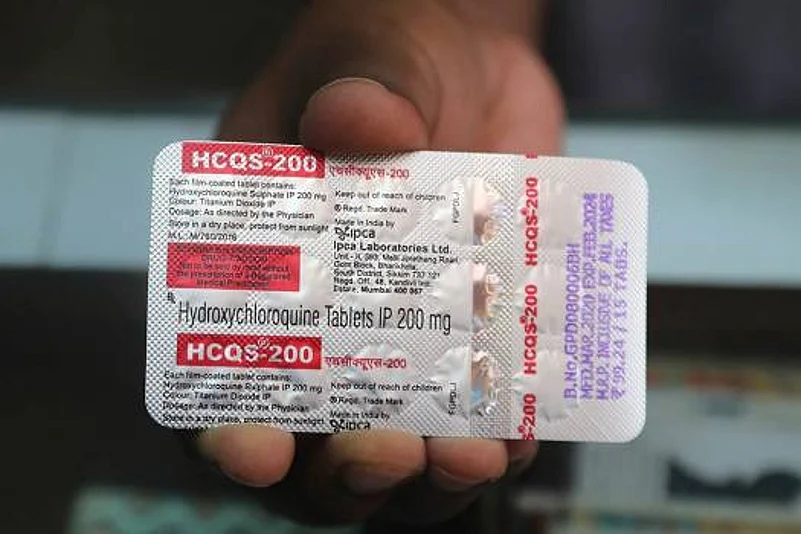Sawai Man Singh (SMS) Medical College Hospital, Jaipur, a premier tertiary teaching hospital, has expressed its sincere concern against World Health Organisation's (WHO) decision to temporarily suspend clinical trial-arm of hydroxychloroquine (HCQ) as a potential treatment for COVID-19.
WHO identified SMS Medical College Hospital as one of the centres for the conduct of multi-centric global Solidarity Trial assessing safety and efficacy of pharmaceutical entities as definitive management protocol for COVID-19.
The hospital incidentally claims to be the first medical institute in the country to design and initiate a probable definitive management protocol (based on the available pathogenetic mechanism) of COVID-19 positive critical patients with a combination regimen of HCQ and two protease inhibitors (that also were anti-HIV drugs) namely, Lopinavir and Ritonavir. The regimen so far has had optimistic outcomes.
Advertisement
Senior Professor (Dr) Sudhir Bhandari, Principal and Controller of the Institute, has expressed apprehension and concern on observations and conclusions drawn in by a recent article published in Lancet, an international journal of repute, that “use of HCQ in COVID-19 positive patients has a high likelihood of inducing cardiac toxicity with antecedent mortality”. He says that this observation, unfortunately, lacks scientific discretion and flavour.
A former fellow, American College of Endocrinology, Professor (Dr) Bhandari is also equivocal of the dose of HCQ (800 mg x 2 loading dose followed by 400 mg x 2 every day for a total of 10 days) that was mandated in WHO solidarity trial.
Advertisement
He added, “Most of the trials published to date, have utilised HCQ in maintenance doses of 400-600 mg/day. Studies from France and China with afore-mentioned dose regimen have shown encouraging results with the use of HCQ when initiated early in course of disease in patients with mild-moderate severity, with a potential to minimise viral load and COVID-19 severity, thereof”.
Prof (Dr) Bhandari is of the view that recent scientific articles that have been published in Lancet, implicating the use of HCQ in COVID-19 positive patients with severe cardiac toxic arrhythmogenic effects (tending to cause irregularity in the rhythm of the heart's beating) need further elaborate scientific exploration.
He says that it would be worthwhile to mention that COVID-19 is essentially a pro-arrhythmogenic state which causes damage to the heart, deficiency in the amount of oxygen reaching the tissues, abnormally low blood pressure along with several other complications and underlying cardiovascular disease. Due to this, utmost caution needs to be observed while managing such COVID-19 positive patients.
“Almost every critical and dying COVID-19 positive patient has a cardiac complication that incidentally happens to be the primary and immediate cause of death in most cases, a fact not appreciated by many, as lung affliction has been the primary focus of medical fraternity” Prof (Dr.) Bhandari added.




















